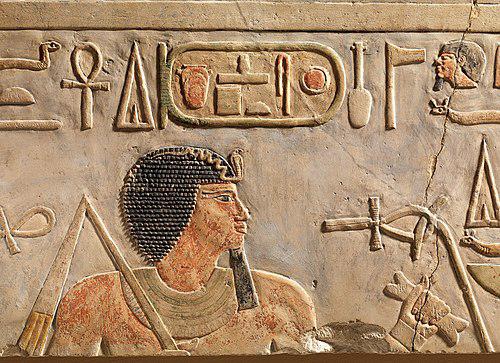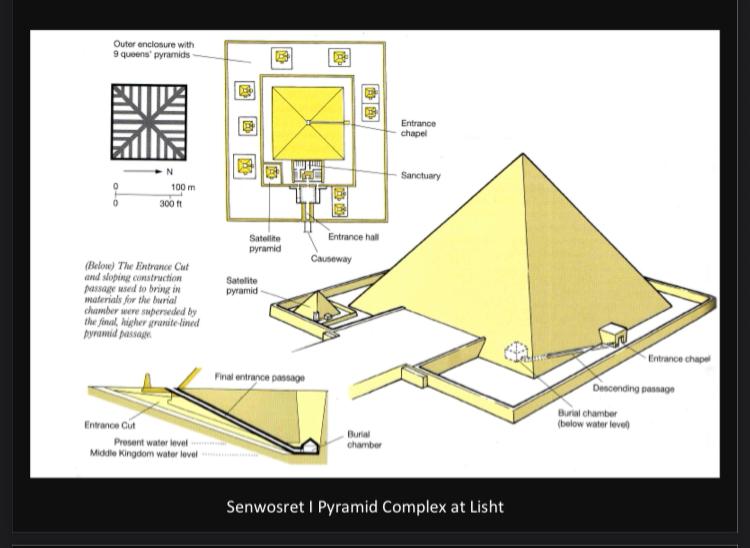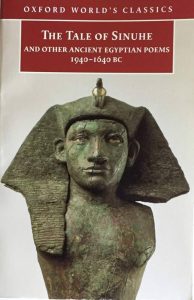The Life of King Amenemhat I as Narrated by Dr. Suleiman Al-Huwaili
- The Silk Road Today


The special episode dedicated to the life of King Amenemhat I, aired on the program “From Another Angle” on Nile Culture Channel, served as a model for specialized talk shows. The guest was the esteemed scholar Dr. Suleiman Al-Huwaili, Professor of Ancient Egyptian Antiquities at the Faculty of Archaeology, Cairo University. The host, Suzan Fadali, offered him—and us—the opportunity to hear an engaging and well-documented discussion about King Amenemhat I, the first ruler of the Twelfth Dynasty, a dynasty that represents the golden age of Egypt’s Middle Kingdom.
The life of Amenemhat I encompassed many perspectives, as he did not belong to a royal lineage from the outset. He came from the venerable south of Egypt, and his rise to power was surrounded by conspiracies and assassination attempts. He initially served as vizier to Pharaoh Mentuhotep IV. Upon ascending the throne, he employed a highly clever strategy: convincing the people that he ruled by divine mandate. Dr. Al-Huwaili presented the Prophecies of Neferti, a papyrus preserved at the Leningrad Museum, which Amenemhat used as a tool of propaganda—one of the earliest recorded examples—to convince the public of his divine appointment.

Amenemhat I is also credited with writing the most famous literary papyrus to his son Senusret I from his deathbed, reflecting on the assassination attempt that ultimately led to his demise—though the perpetrator remains unknown to this day.
King Amenemhat I moved the capital from Thebes, the traditional seat of Egyptian rulers, to Itjtawy. In constructing his pyramid in Lisht, in the Fayoum region, he incorporated decorated reliefs and architectural elements from Old Kingdom monuments—especially the causeways of earlier pyramids and temples, including those of Khufu. The granite blocks used in the pyramid complex were taken from the pyramid complex of King Khafre. But why did the core of Amenemhat’s pyramid complex collapse, leaving only a relatively modest structure compared to the grand pyramids we know today?

Dr. Suleiman Al-Huwaili also discussed Amenemhat’s Instructions to His Son Senusret, considered one of the most significant works of ancient Egyptian didactic poetry. It takes the form of a dramatic monologue, supposedly from the ghost of the slain Pharaoh Amenemhat I, addressing his son:
You who have appeared as a god,
You have become king,
Listen to what I shall relate to you so that you may rule the land
And govern the shores of the river:Be wary of your subordinates,
Do not meet them alone,
Do not trust a brother,
Do not claim a friend,
Nor choose companions,
For such things are in vain…
When you sleep,
Let your heart keep watch,
For a man has no friends in times of hardship.
There are conflicting accounts regarding the assassination of King Amenemhat I. His advice to his son Senusret I may be read as an indication of the conspiracy that ended his life, possibly orchestrated by one of his guards. At the time, his son and right-hand man, Senusret I, was leading a military campaign in Libya. Another theory suggests that one of Amenemhat’s wives was behind the plot.
Dr. Al-Huwaili dramatically recounted the details of the conspiracy that led to the king’s assassination and introduced the figure of Sinuhe—a prominent character in Amenemhat’s story, particularly in the assassination scene. There are many narratives about Sinuhe’s flight to Palestine and then to Syria after the king’s death. Whether he returned to Egypt and died there—thus proving his innocence—remains a subject of scholarly debate.
In his own conclusion, Dr. Al-Huwaili posits that Sinuhe fled in panic after being implicated in the conspiracy. He favored the ascension of Amenemhat’s royal son over his brother, born of the king’s first wife, to whom Amenemhat was married while still serving as vizier under Mentuhotep IV. Sinuhe’s time in Syria changed him deeply, but he ultimately received a pardon and returned to Egypt to live out his final days in peace at the invitation of the new king.
The program was coordinated by director Fatima Al-Zahraa Hassan, directed by Soher Mansi, prepared by Hussein Al-Husseisi, and hosted by journalist Suzan Fadali.



